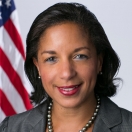
In June 2012, the world missed a deadline, without fanfare and without public outcry: Eighty percent of countries failed to meet the global timeline to be prepared to battle biological threats like Ebola.
Two years, thousands of lives, and billions of dollars later, most countries still don't have in place all the capacity they need to prevent Ebola from spreading or other biological threats from igniting. Consequently, we don't have in place the global system we need — the smoke alarm — to alert us when an outbreak flares.
The United States developed and launched the Global Health Security Agenda to establish urgently the system required to prevent, detect, and rapidly extinguish outbreaks before they become epidemics, starting in the most vulnerable nations. This lack of preparedness is an emergency — it extends beyond West Africa, and we have asked Congress for the funding we need to start now in the most vulnerable nations.
More than a decade has passed since the Severe Acute Respiratory Syndrome (SARS) cost the global economy an estimated $40 billion, and the anthrax attacks sowed fear, infected 22 people, killed 5, and incurred another billion dollars in clean-up costs. Five years have passed since the global H1N1 influenza pandemic of 2009 killed hundreds of thousands of people. Yet the countries of West Africa and many other developing nations still do not have the basic tools required to prevent, detect, and rapidly respond to Ebola and other disease threats before they spread.
Even as Ebola ravages West Africa, the world is simultaneously battling deadly outbreaks of plague, the Middle East Respiratory Syndrome (MERS), and avian influenza, and we have seen Marburg and Lassa fever flare. We also remain concerned about the continued threat posed by bioterrorism and unsecured deadly pathogens around the world. We must act now.
To contain Ebola and other biological threats at the source — before they threaten Americans and our global security — we have included funding in the emergency request to prevent Ebola and other deadly outbreaks from spreading in the places around the world that are not equipped to handle Ebola and other biological threats. This includes countries across Africa and Asia without the infrastructure or capacity to handle health emergencies, those with high population density, and major transport hubs. Investment now will also reduce the potential for future outbreaks of infectious disease that could follow a similarly devastating, costly, and destabilizing trajectory.
With this funding, we will:
- Stand up emergency operations centers
- Provide equipment and training to test patients, detect disease, and report data in real time
- Strengthen safe and secure laboratory capability
- Train disease detectives to end outbreaks before they become epidemics
We won’t do this alone. We have asked our partners to continue to step up and assist as they have with the Ebola response. On September 26, the White House brought together ministers and senior officials from 43 other nations to announce more than 100 new, concrete commitments to establish health sector capacity in developing countries. Under the Global Health Security Agenda, we have established specific milestones to measure country-by-country progress, enhance accountability, and ensure these funds are properly spent.
To secure the American people from global epidemics, we must stop these epidemics at their source. That requires building health care infrastructure in the most vulnerable countries. To do so, we must have the resources we need to get the job done. If we fail to invest now, we can be certain it will cost us more in the future — in lives lost, dollars spent, and risk to Americans.
We can also be certain that Ebola won't be the last deadly outbreak we battle at home or abroad; in today's interconnected world, an outbreak anywhere is an outbreak that has to be addressed everywhere. But, if we act swiftly, we can put in place the systems we need to help prevent Ebola from spreading, and to keep outbreaks from becoming epidemics.
When we think about emergencies, a smoke alarm is one of the most prudent investments. We have the capacity and the opportunity to establish a global system that snuffs out future epidemics before they threaten Americans, cost lives, and destabilize the economy. If we delay, we will pay much more.
Ambassador Susan E. Rice is the President’s National Security Advisor.


